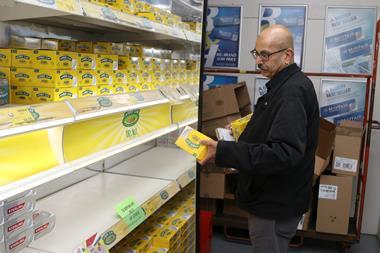FSB calls for financial support for small businesses in no-deal Brexit

The Federation of Small Businesses (FSB) has called on the government to introduce wide-reaching measures in an early Budget to boost small business cash flow in the event of a no-deal Brexit.
ALREADY HAVE A REGISTERED USER ACCOUNT? PLEASE LOG IN HERE
To read the full story join the ConvenienceStore.co.uk community today!
Registration is quick and easy and provides access to:
- Unlimited ConvenienceStore.co.uk articles
- Our great range of newsletters
- Content you’ve saved for later via the ‘my library’ feature
And much more…






























